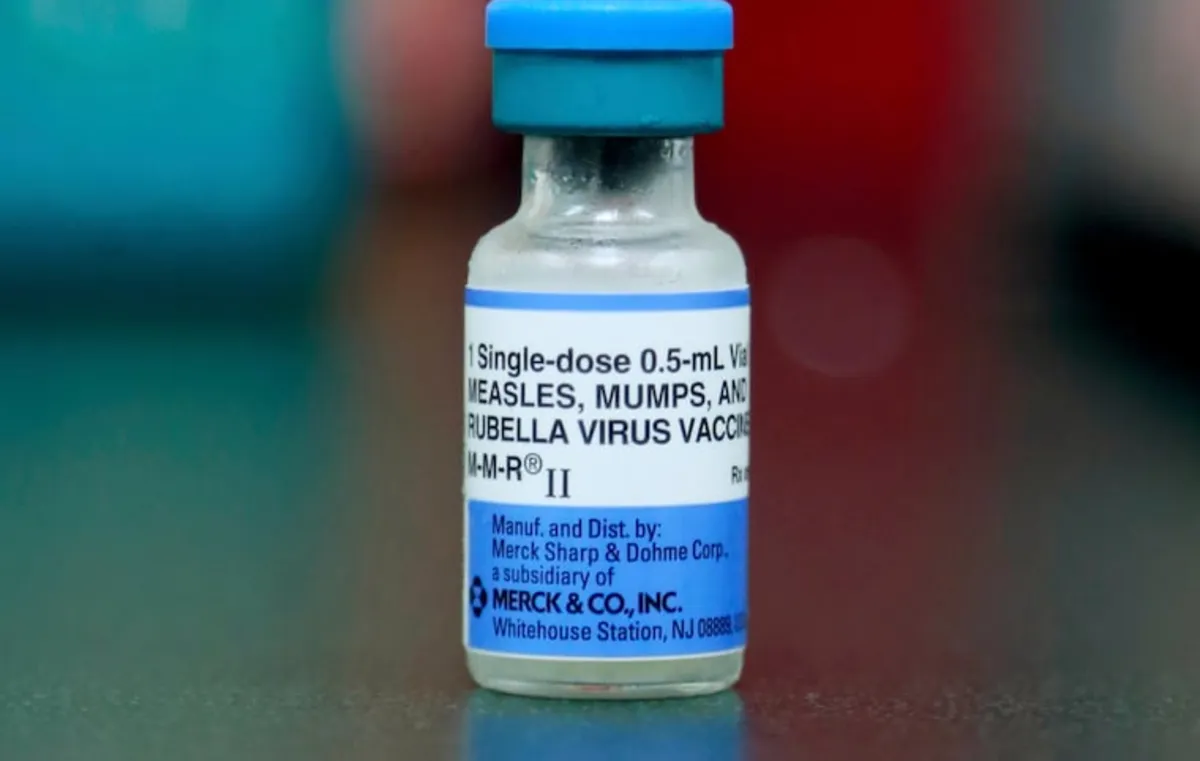
Health officials in Montgomery County announced over the weekend that a child, too young to be vaccinated, has been diagnosed with measles. This alarming situation has prompted officials to initiate contact tracing for the child and their parents. Individuals who visited specific locations in North Philadelphia, Plymouth Meeting, and King of Prussia during the relevant timeframe may have been exposed to this highly contagious virus.
Over the past year, multiple cases of measles have emerged in the Philadelphia region. Notably, last winter, a measles outbreak affected nine individuals, leading to seven hospitalizations. Additionally, New Jersey’s Bergen County recently reported three cases of measles, all among unvaccinated residents. This article aims to provide essential information about measles and effective ways to protect yourself against this disease.
The recent measles case in Montgomery County involves a baby who had not yet received their first dose of the measles vaccine. Richard Lorraine, the medical director of Montgomery County’s health department, stated that the child had traveled internationally to an area where measles is more prevalent. The child subsequently returned to Montgomery County, passing through New York, New Jersey, and Philadelphia.
As of now, there are no other reported cases in the county. Health officials are actively monitoring a few individuals who may have been exposed to the virus and are uncertain about their immunization status. These contacts are currently being tested for antibodies to the disease. Lorraine expressed optimism, stating, “There’s a very good chance we’re not going to see additional cases,” citing the strong community protection due to high vaccination rates in Montgomery County—around 95%.
Measles is an exceptionally contagious virus that spreads through respiratory droplets expelled by an infected individual. People can contract the virus by directly touching these droplets or inhaling them after an infected person coughs or sneezes. According to the Centers for Disease Control and Prevention (CDC), the virus can survive in the air for up to two hours, even after the infected individual has left the area. This is why health officials issue warnings about public places visited by infected individuals, ensuring that potential exposures are communicated to the public.
In this instance, the child visited True North Pediatrics Associates in Plymouth Meeting and the CHOP King of Prussia Campus Emergency Department on February 26. The child also traveled on a China Airlines shuttle bus from John F. Kennedy Airport Terminal 4 in New York, arriving at Pho Ha Saigon in North Philadelphia.
The early symptoms of measles include fever, cough, runny nose, red and puffy eyes, and a characteristic rash. In severe cases, measles can lead to complications such as pneumonia, brain infections, and even death. A current outbreak in West Texas has tragically resulted in the death of one child. The CDC reports that approximately one in five unvaccinated individuals who contract measles will require hospitalization, and one in 20 children may develop pneumonia, which is the leading cause of death from measles in young children. Alarmingly, about one to three children out of every 1,000 infected with measles may die from the disease.
The measles, mumps, and rubella (MMR) vaccine is highly effective, with a 93% success rate in preventing measles after one dose and 97% after two doses. However, a small percentage of vaccinated individuals can still contract measles, particularly during outbreaks. For example, in the recent West Texas outbreak, about 5% of those infected had already received the vaccine, which aligns with historical data, as noted by the CDC. Vaccinated individuals who do contract the virus generally experience milder symptoms and are less likely to transmit the virus to others.
The CDC strongly recommends vaccination against measles for all eligible individuals. Even unvaccinated individuals who have been exposed to the virus may gain some protection if they receive the vaccine within 72 hours of exposure. Exceptions apply to pregnant individuals, those with compromised immune systems, or individuals with severe allergies to vaccine components. For those without written proof of receiving an MMR vaccine, vaccination is advised, as the MMR vaccine is considered safe, and there is no harm in receiving an additional dose if immunity is already established.
Some individuals who received a measles vaccine between 1963 and 1967, when an ineffective inactivated virus vaccine was distributed, may need a booster dose of the live virus vaccine. The CDC recommends that individuals vaccinated before 1968 with an inactivated measles vaccine or of unknown type should receive at least one dose of the live virus vaccine. People born before 1957 are typically considered immune, although healthcare workers in that age group without lab evidence of immunity or a prior infection should consider receiving an MMR vaccine.
Most children receive their first measles vaccine at around 12 months of age and a second dose at approximately 4 years old. Babies aged 6 to 11 months traveling internationally should receive one dose of the vaccine. Parents are encouraged to consult their healthcare providers about administering the second vaccine earlier if planning to travel to areas with known measles outbreaks.
Richard Lorraine emphasized the importance of adults ensuring they are current on all vaccines, stating, “It’s a good time to double check your immune status.” This case in Montgomery County serves as a crucial reminder for parents and adults to be vigilant about measles vaccination and overall health.